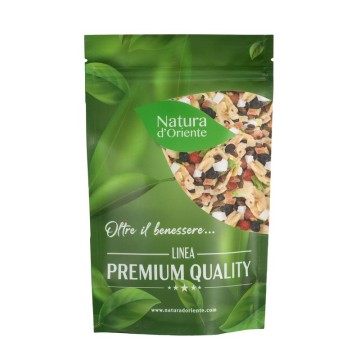Dehydrated Sultana Grapes
It is created by drying grapes in the sun and preserves its nutritional principles, as well as its sweet taste. This golden raisin comes from a variety of seedless white grapes, rich in beneficial properties for our body!
Dried sultanas: properties and benefits
This grape variety has a high nutritional content of antioxidants and essential minerals for healthy body function. Sultanas are an excellent source of potassium, iron and vital nutrients, also useful for regulating blood pressure and counteracting anemia.
In addition, the rich fiber content keeps the digestive tract healthy, and sultanas are in fact a food that relieves constipation.
Dietary fibers help make bowel movements fluid, making the stomach less swollen, and promoting intestinal transit at every stage.
In terms of blood pressure, some fruits can be beneficial, such as sultanas thanks to the presence of minerals such as potassium and iron. These help to increase the number of red blood cells, to relax blood vessels, helping to reduce systolic blood pressure and combating hypertension phenomena together with a healthy diet.
Also at the cardiovascular level, the potassium content and the low sodium content lower the levels of lipoproteins and bad cholesterol, helping to improve heart health.
In sultanas, good levels of calcium and the micronutrient boron, which helps the body absorb calcium, provide support to strengthen bones.
In the diet, providing extra nutrients and natural sugars, raisins in small doses can be useful as a snack or breakfast, filling you up while providing energy.
Sultanas can also be a fruit useful for fighting anemia, increasing the levels of iron and vitamin B, promoting the production of red blood cells and the proper transport of oxygen in the blood.
Dried sultanas are also a good source of antioxidants, which are associated with properties that can reduce blood cholesterol levels, and anti-aging properties such as anthocyanins.
Furthermore, the famous antioxidant resveratrol of grapes can act as a preventive substance for the onset of degenerative diseases, such as Alzheimer's and other neuro-degenerative diseases.
The B vitamins contained in sultanas, in addition, are important to help the body's proper metabolism, while copper and manganese can help fight oxidative stress,
In our diet, grapes, and sultanas in particular, as we know from ancient times, reduce the acidity inside the body, and induce satiety.
Origins and History of cultivation
The sultana grape is a variety of grape that probably originated in the Mediterranean area, in Greece or in Turkey, and according to others alternatively, has an Iranian origin.
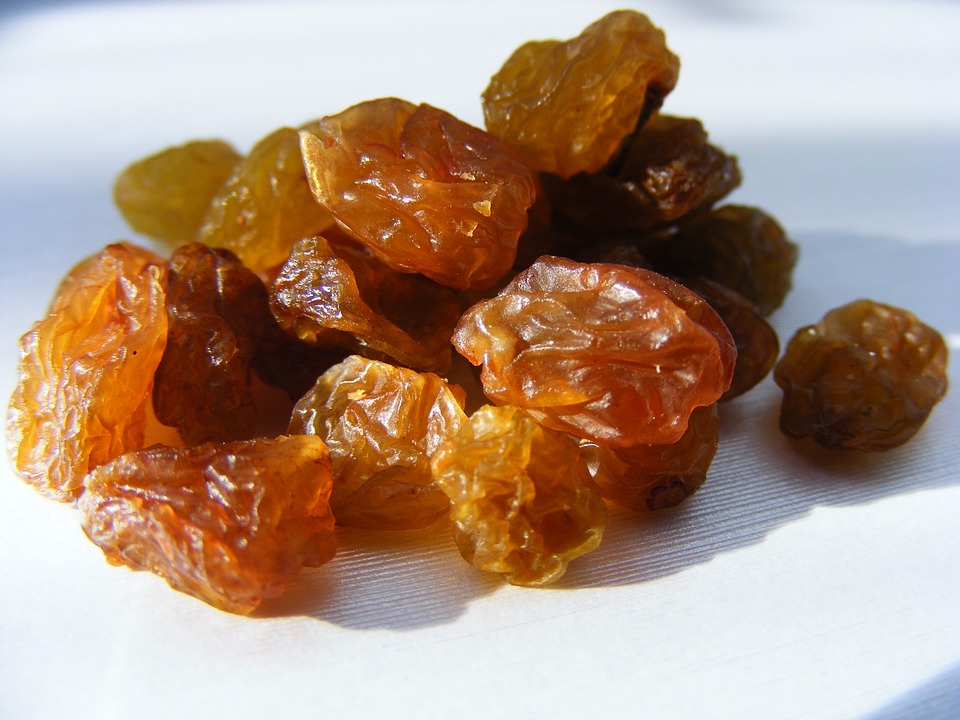 It is believed that its name derives from the city of Sultania, which is located on the Crimean peninsula. For many centuries Sultania was an important trading port of the maritime republics of Genoa and Venice, as a stop along the Silk Road.
It is believed that its name derives from the city of Sultania, which is located on the Crimean peninsula. For many centuries Sultania was an important trading port of the maritime republics of Genoa and Venice, as a stop along the Silk Road.
This type of grape has been cultivated, however, for centuries and is known as a resistant plant, with a strong vine, with little fertility of the buds.
Requires long pruning, and prefers deep, as well as fresh soils.
The optimal climatic conditions for its cultivation are those of the geographical areas in which it originates, in fact it prefers the warm climate.
Today Australia and Turkey are competing for leadership as the world's largest producers.
Plant and Fruit
Sultanas are a variety of the well-known Vitis vinifera, the classic vine, belonging to the Vitaceae family. Its fruits are well known when consumed dried, known as raisins. It is also called Thompson Seedless grape, Lady de Coverly, Kishmish.
The plant provides large white and golden grapes, prized for tenderness and sweetness, and juicier than the classic raisins.
These are seedless berries, which can be round or oval, and they come
Sultanas are classified according to color, which varies from dark brown, light brown, golden.
Also for winemaking , sultanas are used to produce white wine, as well as for table grapes, and to make raisins or dehydrated sultanas .
Nutritional values of dehydrated sultanas
This type of grape is rich in antioxidants, polyphenols, soluble and insoluble fibersthem and provides a plethora of vitamins and minerals, including a complex of B vitamins, potassium, calcium and iron.
In particular, the nutritional values of dried sultanas have about 300 calories per 100 grams .
Furthermore, compared to low fat (about 0.4%), sultanas donate 2.6% of protein, fiber (about 4%), calcium, iron and potassium with values of about 750 mg / 100 g.
In terms of vitamins, sultana grapes provide a fair amount of B vitamins .
How to consume or use dehydrated sultanas in the kitchen
Small, sweet and chewy, raisins are a classic snack that many have experimented with from an early age. Today, in addition to being an excellent snack, sultanas are used much more in recipes, often incorporated into sweet dessert cakes, muffins, cupcakes, mixed with cereals, yogurt for breakfast or as a snack.
It can be inserted in salads for a sweet touch and cooked with biscuits, as a succulent ingredient, or as a decoration on ice creams and sorbets.
Sultanas are the best choice as a hunger breaker snack, as they are satiating and energizing.
Dried sultanas: side effects and contraindications
There are no particular contraindications to taking dried fruit grains such as sultanas, always remaining in moderate quantities. An excess of dried grapes, in fact, could have a laxative effect.
Pay attention if you are intolerant or allergic to grape food.
For those with obesity or diabetic problems, it is best not to increase blood sugar levels too much; therefore, it is advisable to take dehydrated grapes in minimal quantities, given the high quantity of sugars contained.

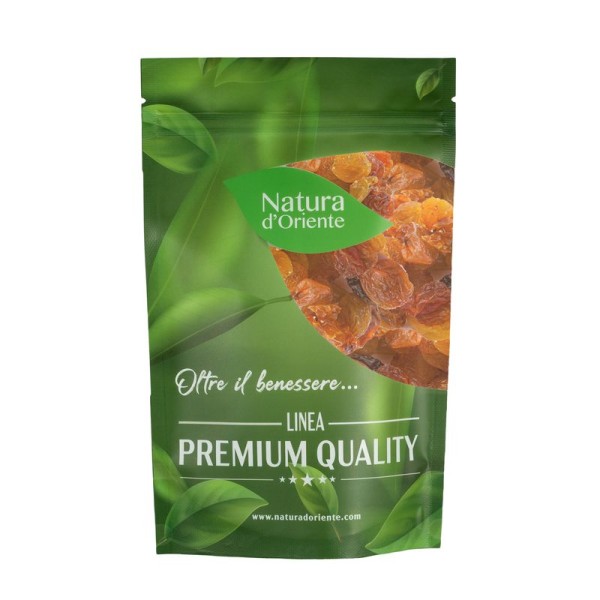









 No reward points for this product.
No reward points for this product.
 It is believed that its name derives from the city of Sultania, which is located on the Crimean peninsula. For many centuries Sultania was an important trading port of the maritime republics of Genoa and Venice, as a stop along the Silk Road.
It is believed that its name derives from the city of Sultania, which is located on the Crimean peninsula. For many centuries Sultania was an important trading port of the maritime republics of Genoa and Venice, as a stop along the Silk Road.
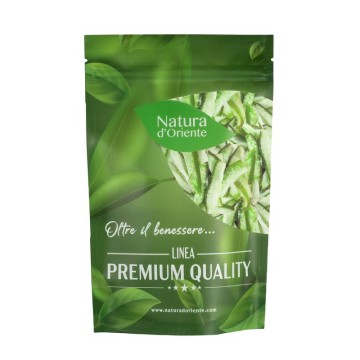
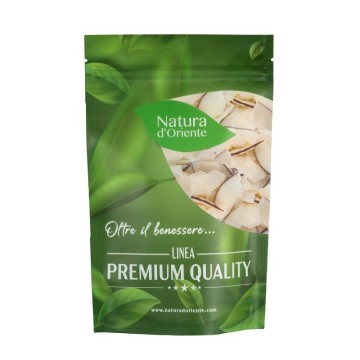
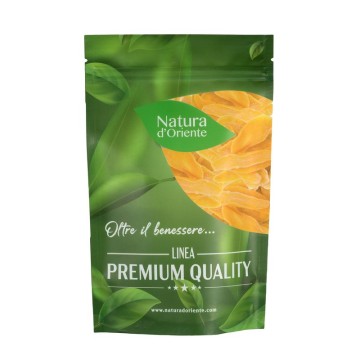
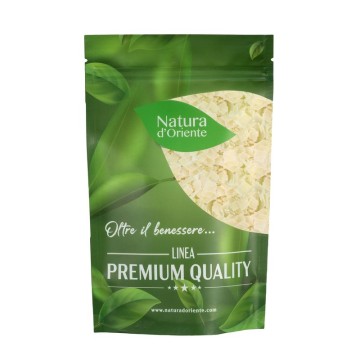
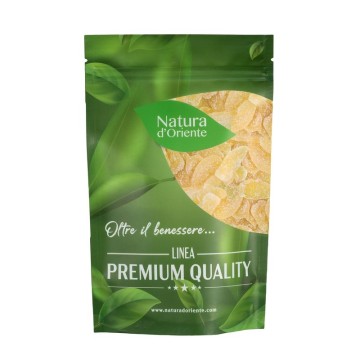
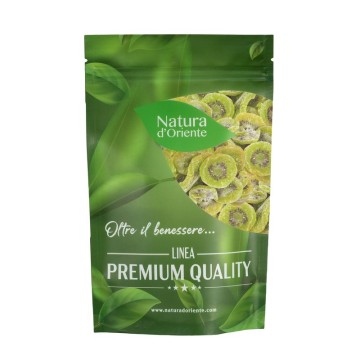
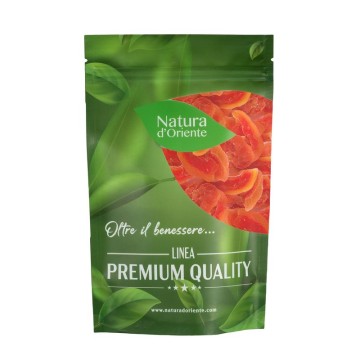
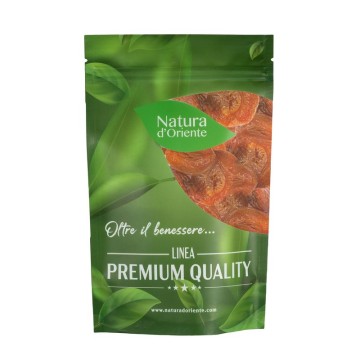
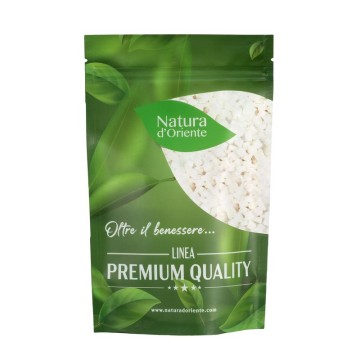

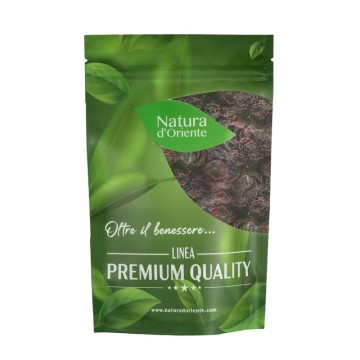
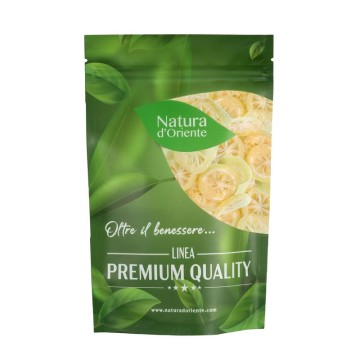
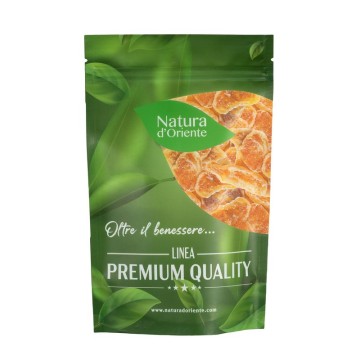
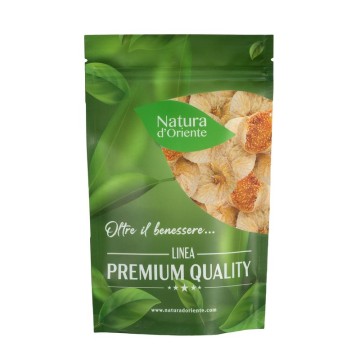
![Natural dehydrated grapefruit without added sugar [NATURADORIENTE]](https://www.naturadoriente.com/10190-home_default/pompelmo-naturale-disidratato-senza-aggiunta-di-zucchero.jpg)
